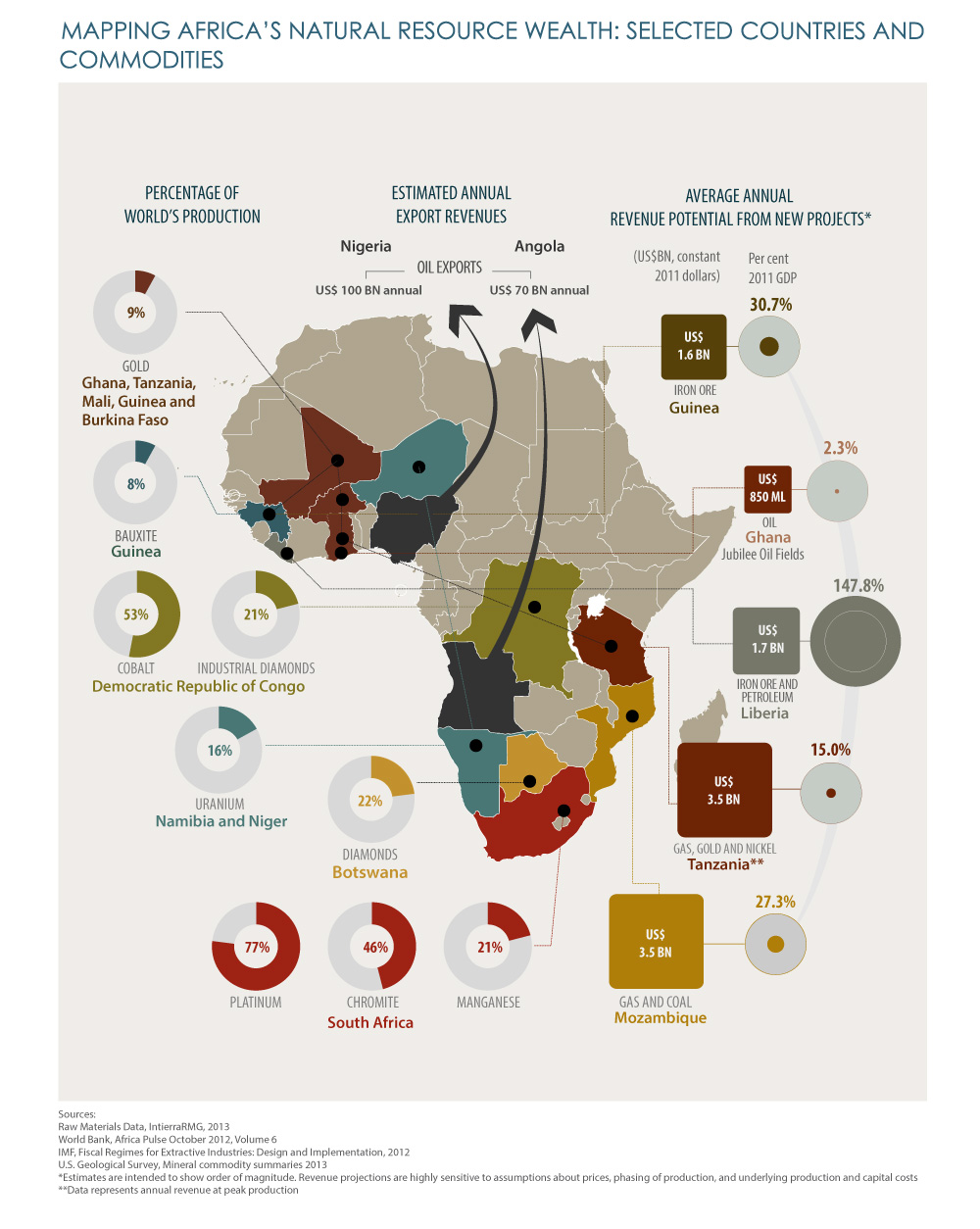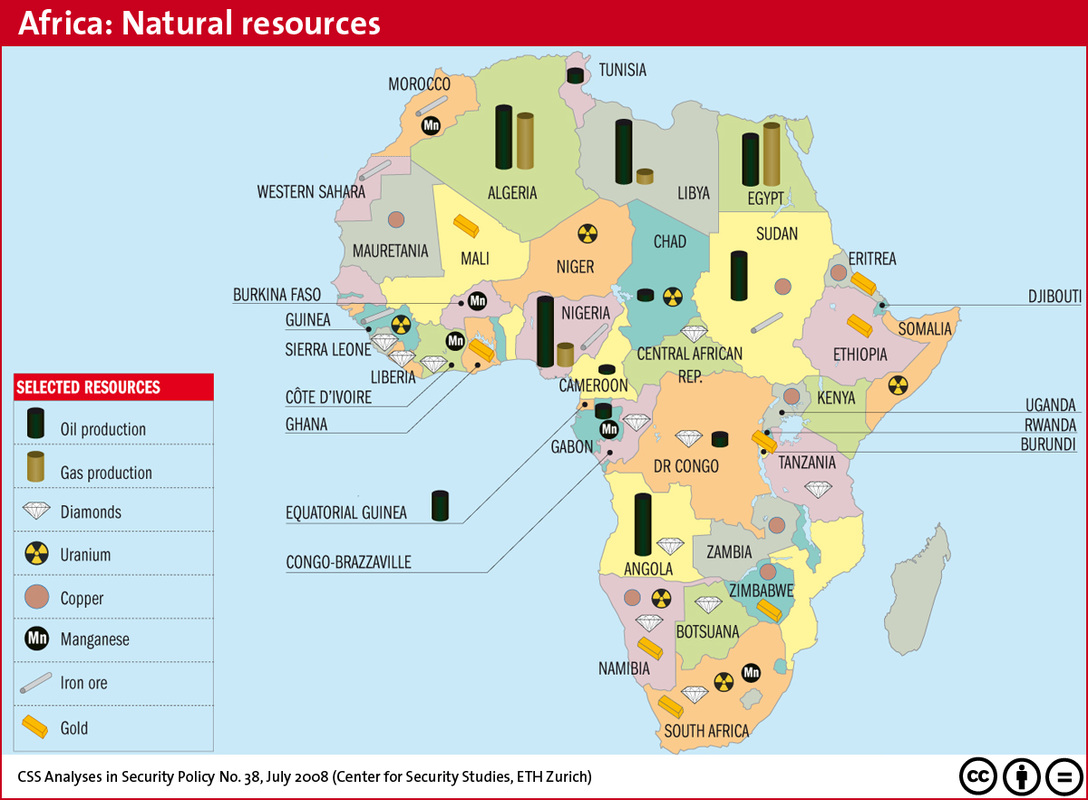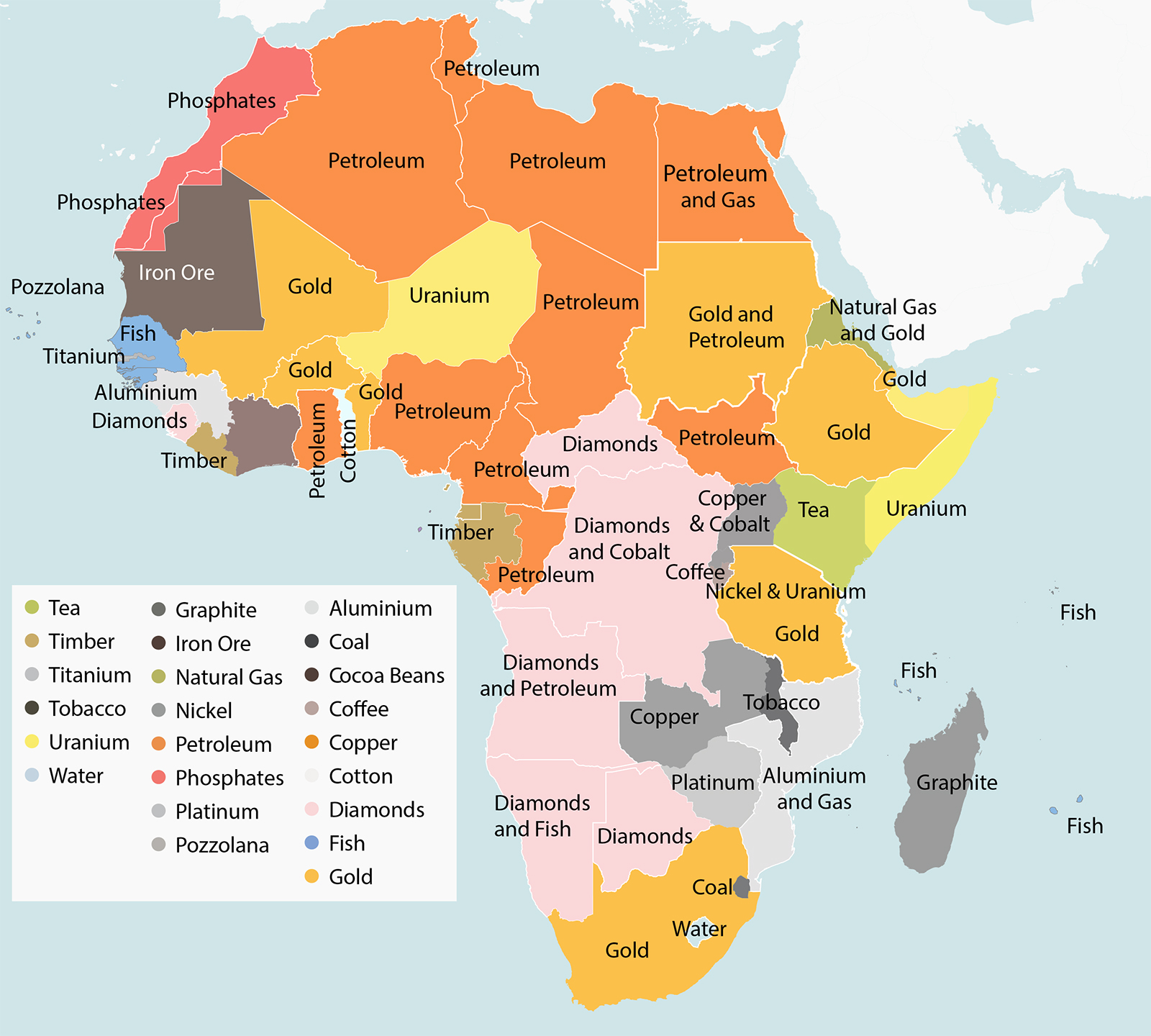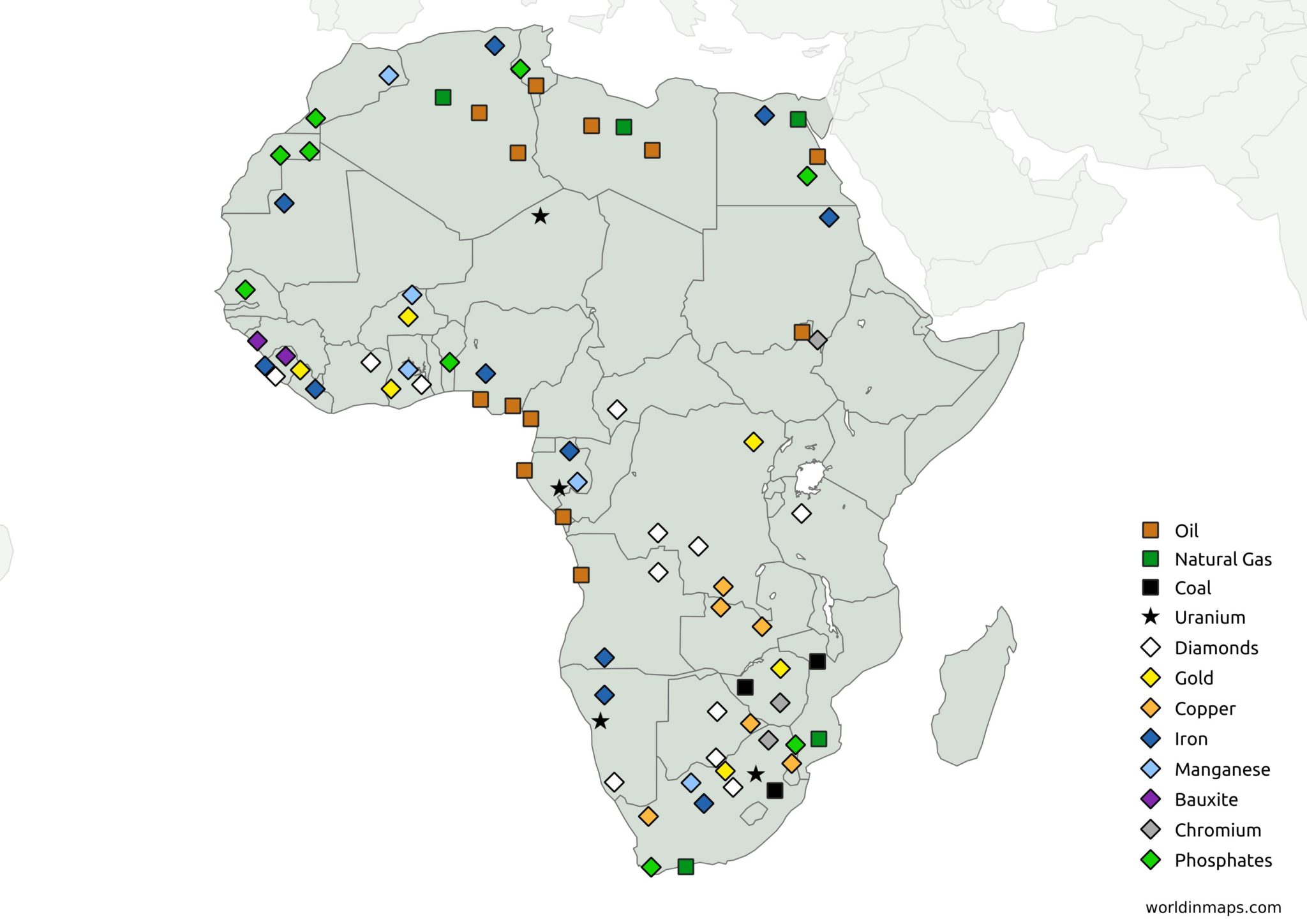A Comprehensive Overview of Africa’s Natural Resources: A Map of Potential and Challenges
Related Articles: A Comprehensive Overview of Africa’s Natural Resources: A Map of Potential and Challenges
Introduction
In this auspicious occasion, we are delighted to delve into the intriguing topic related to A Comprehensive Overview of Africa’s Natural Resources: A Map of Potential and Challenges. Let’s weave interesting information and offer fresh perspectives to the readers.
Table of Content
A Comprehensive Overview of Africa’s Natural Resources: A Map of Potential and Challenges

Africa, the second-largest continent, is a treasure trove of natural resources, boasting a diverse and abundant array of minerals, energy sources, agricultural land, and biological diversity. Understanding the distribution and potential of these resources is crucial for unlocking Africa’s economic and social development. This article delves into the key natural resources of Africa, highlighting their geographical distribution, importance, and challenges, using a map as a visual guide.
Mineral Wealth: A Foundation for Development
Africa is renowned for its vast mineral wealth, holding significant reserves of various commodities, including:
- Gold: South Africa, Ghana, Mali, and Burkina Faso are leading gold producers, contributing significantly to their economies.
- Diamonds: Botswana, Democratic Republic of Congo, and South Africa are global leaders in diamond production, driving economic growth and attracting foreign investment.
- Platinum Group Metals (PGM): South Africa, Zimbabwe, and the Democratic Republic of Congo hold substantial reserves of platinum, palladium, and rhodium, crucial for the automotive and jewelry industries.
- Copper: Zambia, the Democratic Republic of Congo, and South Africa are major copper producers, supplying global markets with this essential metal used in various industries.
- Iron Ore: South Africa, Mauritania, and Algeria possess vast iron ore reserves, supporting steel production and heavy industries.
- Cobalt: The Democratic Republic of Congo is the world’s leading cobalt producer, a key component in electric vehicle batteries.
- Uranium: Niger, Namibia, and South Africa are significant uranium producers, fueling nuclear power generation.
Energy Resources: Powering Africa’s Future
Africa possesses a diverse range of energy resources, with significant potential for sustainable development:
- Oil and Gas: Nigeria, Algeria, Libya, and Angola are major oil producers, contributing to global energy markets. Natural gas reserves are substantial in Algeria, Nigeria, and Egypt, offering potential for domestic use and export.
- Hydropower: The continent’s abundant rivers, particularly the Congo, Nile, and Zambezi, offer immense hydropower potential, providing a clean and renewable energy source.
- Solar Energy: With extensive sunshine, Africa has immense solar potential, particularly in the Sahara Desert, offering a clean and abundant source of energy.
- Wind Energy: Coastal areas and elevated regions offer significant wind energy potential, providing a clean and renewable source of electricity.
Agricultural Land: Feeding Africa and the World
Africa possesses vast tracts of fertile land suitable for agriculture, offering potential to feed its growing population and contribute to global food security.
- Arable Land: Ethiopia, Sudan, and Nigeria have significant arable land, suitable for cultivating a wide range of crops.
- Pastureland: Countries like Sudan, Tanzania, and Namibia boast extensive pastureland, supporting livestock production and contributing to the agricultural economy.
- Fisheries: Coastal countries like Senegal, Mauritania, and Namibia have rich fishing grounds, providing protein sources and supporting livelihoods.
Biological Diversity: A Rich Tapestry of Life
Africa is renowned for its exceptional biodiversity, home to a vast array of flora and fauna, offering immense potential for conservation, research, and ecotourism:
- Rainforests: The Congo Basin rainforest is the second-largest in the world, harboring diverse plant and animal species, including endangered gorillas and chimpanzees.
- Savannas: Vast savannas in countries like Kenya, Tanzania, and South Africa are home to iconic wildlife such as lions, elephants, and giraffes, attracting tourists from around the world.
- Deserts: The Sahara Desert, the largest hot desert in the world, supports unique desert-adapted flora and fauna, offering potential for research and conservation.
A Map of Opportunities and Challenges
The map of Africa’s natural resources reveals a continent rich in potential, but also facing significant challenges:
- Resource Management: Sustainable resource management is crucial to ensure long-term benefits and minimize environmental degradation.
- Infrastructure Development: Investing in transportation, energy, and communication infrastructure is essential to unlock the full potential of natural resources.
- Governance and Corruption: Good governance, transparency, and accountability are vital to ensure fair and equitable distribution of resource benefits.
- Conflict and Instability: Conflicts over resource control can hinder development and create instability, impacting the efficient utilization of resources.
- Climate Change: Climate change poses significant threats to water resources, agricultural productivity, and biodiversity, requiring adaptation strategies.
FAQs: Exploring the Nuances of Africa’s Natural Resources
Q: What are the most valuable natural resources in Africa?
A: The most valuable resources vary depending on market demand and geopolitical factors. However, gold, diamonds, platinum group metals, copper, iron ore, oil, and gas are considered highly valuable commodities.
Q: How do natural resources impact Africa’s economy?
A: Natural resources play a significant role in Africa’s economy, contributing to GDP, employment, and export earnings. However, resource-dependent economies can be vulnerable to price fluctuations and market volatility.
Q: What are the challenges associated with managing Africa’s natural resources?
A: Challenges include resource depletion, environmental degradation, corruption, conflict, and lack of infrastructure. Effective resource management requires sustainable practices, good governance, and investment in infrastructure.
Q: How can Africa benefit from its natural resources?
A: Africa can benefit by promoting sustainable resource management, attracting investment, developing local industries, and creating jobs. Diversifying economies and reducing dependence on raw materials is also crucial.
Q: What role can technology play in managing Africa’s natural resources?
A: Technology can enhance resource management through remote sensing, Geographic Information Systems (GIS), and data analytics. Innovative technologies can also improve resource extraction, processing, and utilization.
Tips for Utilizing Africa’s Natural Resources Effectively
- Promote Sustainable Resource Management: Implement policies and practices to ensure long-term resource availability and minimize environmental damage.
- Develop Infrastructure: Invest in transportation, energy, and communication infrastructure to facilitate resource extraction, processing, and distribution.
- Foster Diversification: Promote economic diversification to reduce reliance on single commodities and create a more resilient economy.
- Encourage Value Addition: Process raw materials locally to create higher-value products and generate more jobs and revenue.
- Invest in Education and Skills Development: Educate and train local communities to participate in resource management and benefit from resource-related industries.
Conclusion: A Continent of Potential
Africa’s natural resources represent a vast potential for economic growth, social development, and global prosperity. However, realizing this potential requires a concerted effort to address the challenges of resource management, infrastructure development, governance, and climate change. By adopting sustainable practices, promoting responsible governance, and investing in human capital, Africa can unlock the full potential of its natural resources and build a brighter future for its people.

![Africa's natural resources [1200 x 1000] : r/MapPorn](https://preview.redd.it/tqx0ybjm90oz.jpg?auto=webpu0026s=076ad3c2898c3fbe355fcefbf887410b4826d50f)





Closure
Thus, we hope this article has provided valuable insights into A Comprehensive Overview of Africa’s Natural Resources: A Map of Potential and Challenges. We appreciate your attention to our article. See you in our next article!
